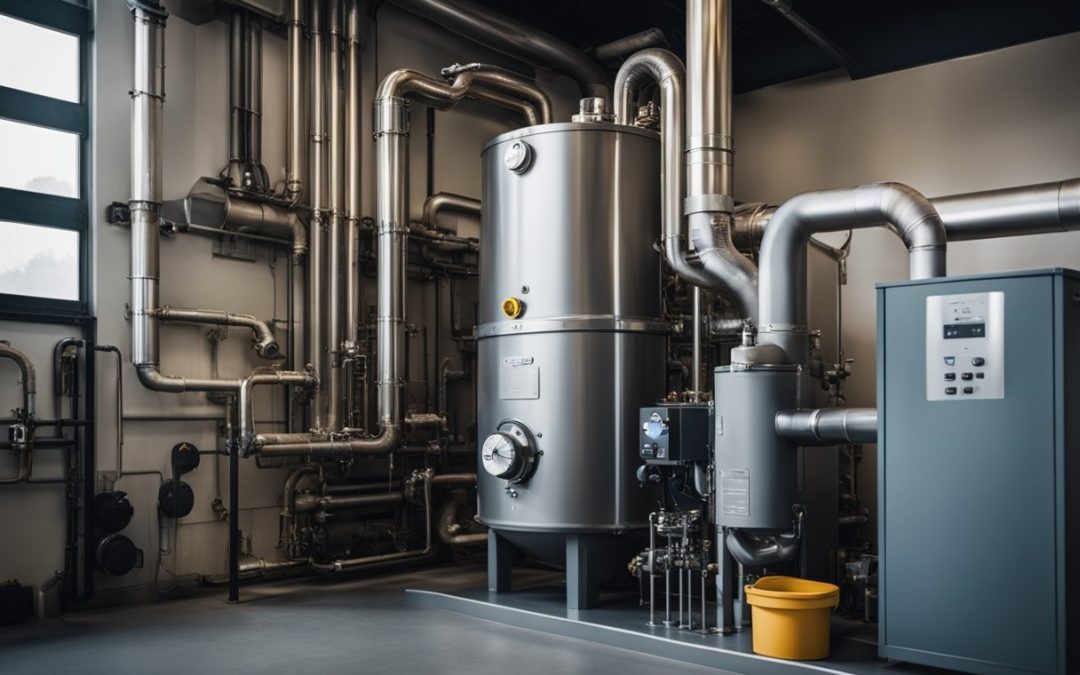A boiler plays a crucial role in ensuring a comfortable home, but like any appliance, it requires regular maintenance. Strange noises from the boiler, such as clanking or whistling, are significant signs that it needs inspection. These noises often indicate underlying issues that could lead to more severe problems if not addressed.
Another key indicator is irregular heating or hot water supply. If rooms in the house are not heating evenly or hot water is intermittently cold, this could signal that the boiler is not functioning correctly and needs professional attention. Monitoring the boiler’s performance can help avoid sudden breakdowns and costly repairs.
Common Signs Your Boiler Needs Inspection
Strange Noises
Unusual noises such as banging, whistling, or gurgling from a boiler indicate potential issues. Banging sounds may suggest trapped air or mineral deposits within the system. Whistling often indicates water pressure problems. Gurgling noises could be a sign of low water pressure or a blockage. These sounds warrant immediate investigation to prevent further damage and maintain safe operation.
Water Leaks
Water leaks around the boiler or from pipes connected to it are concerning. Leaks can lead to significant property damage and increase humidity levels, promoting mold growth. Usually, leaks stem from faulty seals, pressure valve issues, or corrosion. Prompt attention from a technician is essential to fix leaks and avoid extensive damage or complete system failure.
Inconsistent Heating
If radiators are unevenly heated or the hot water supply varies, the boiler may not be functioning correctly. Inconsistent heating can result from several issues, including thermostat problems, airlocks, or worn-out components. Addressing these concerns early helps ensure efficient heating and prevent higher energy bills due to poor performance.
Pressure Issues
Monitoring boiler pressure is crucial; it should typically remain between 1 and 2 bars. Persistent high or low pressure could indicate underlying problems. Low pressure often results from leaks or bleeding radiators, while high pressure might be due to a malfunctioning pressure relief valve. Fluctuating pressure warrants inspection to identify and resolve the issue promptly.
Pilot or Ignition Problems
A consistently extinguished pilot light or ignition issues disrupt the boiler’s operation. Such problems can arise from thermocouple failures, gas supply issues, or deposits obstructing the pilot light. These issues can compromise the system’s efficiency and safety, necessitating expert evaluation and repair.
Consequences of Neglecting Boiler Inspection
Neglecting regular boiler inspections can result in significant safety risks, increased repair costs, reduced efficiency, and a shortened lifespan for the unit.
Safety Risks
Boilers that are not inspected regularly pose serious safety hazards. Leaks of carbon monoxide, a colorless and odorless gas, can be deadly. The boiler can also experience explosions due to high pressure or malfunctioning components, endangering the safety of anyone nearby.
Aging boilers are particularly susceptible to these risks, making annual inspections crucial. In New York, building codes mandate regular inspections to prevent such dangers and ensure the safety of residents and workers.
Increased Repair Costs
Ignoring NYC boiler inspections can cause minor issues to escalate into major problems. Small leaks or minor component failures, if left undetected, may require expensive repairs. Regular inspections help identify issues early, minimizing repair costs.
NYC boiler repairs are notably costly, and neglect can lead to sudden high costs that strain budgets. With proper inspection and maintenance, many of these expenses can be avoided, ensuring the boiler remains in good condition.
Reduced Efficiency
Boilers that are not maintained lose efficiency over time. Components such as burners and heat exchangers may get dirty or wear out. This results in higher energy consumption and increased utility costs. By scheduling regular inspections, these components can be cleaned or replaced, maintaining optimal efficiency.
In New York, where heating demands are high, inefficient boilers significantly impact utility bills. Regular inspections ensure that boilers run efficiently throughout their lifespan, saving money and energy.
Shortened Lifespan
Boilers that lack regular inspections and maintenance often have a shortened lifespan. Routine inspections help detect early signs of wear and tear, allowing for timely maintenance. Without this, boilers may fail prematurely, necessitating costly replacements.
In NYC, the cost of replacing a boiler can be substantial. Extending the lifespan through regular inspections and maintenance can lead to significant long-term savings. Proper care ensures the boiler can operate effectively and reliably for many years.

Recent Comments